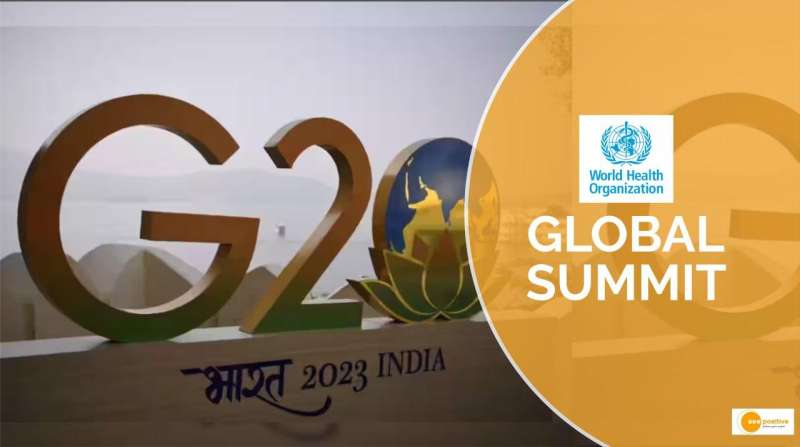

A Historic Gathering for Traditional Medicine
Sarbananda Sonowal, the Union Minister of Ayush, hailed the summit as a momentous occasion, underlining its historical relevance. The summit’s outcomes are set to be encapsulated in the forthcoming “Gujarat Declaration,” a document slated for release by the WHO.
Global Insights on Traditional Medicine
During the summit, the WHO unveiled initial findings from its comprehensive global survey on Traditional Medicine. These insights shed light on the increasing adoption and prevalence of traditional medical methods worldwide. The finalized survey results are scheduled for November release. Minister Sonowal, addressing the media, emphasized the forthcoming Gujarat Declaration’s role in acknowledging Traditional Medicine’s pivotal contribution to achieving Universal Health Coverage (UHC). This declaration stands as a testament to WHO’s commitment to supporting member states in advancing UHC through evidence-based policies.
Global Recognition for Traditional Medicine
Minister Sonowal highlighted the preliminary findings from the WHO’s Global Survey, indicating that 97 out of 157 WHO member states have established National Policies related to Traditional Medicine.
Expanding Horizons of Traditional Medicine
Minister Sonowal elucidated the Ministry of Ayush’s efforts to expand the influence of Indian Traditional Medicine systems. Fruitful bilateral discussions were held with nations including Nepal, Malaysia, Qatar, Venezuela, and Cuba, fostering collaborations, knowledge sharing, and best practice exchange. These diplomatic dialogues laid the groundwork for collaborative research, educational initiatives, and Ayurveda-based training.
Transformative Vision and Initiatives
Minister Sonowal commended Prime Minister Narendra Modi’s visionary dedication, which led to the establishment of the Global Centre of Traditional Medicine in Jamnagar, Gujarat. This milestone was followed by the inaugural Global Summit on Traditional Medicine. The summit’s outcomes will steer the future direction of the Global Centre of Traditional Medicine and influence WHO’s strategic roadmap for Traditional Medicine from 2025 to 2034.
Traditional Medicine in the Digital Age
Minister Sonowal discussed the rising opportunities in the realm of Traditional Medicine, highlighting the global demand for Digital Health Services. He underscored traditional medicine’s potential to offer evidence-based health solutions, aligning with the contemporary quest for holistic well-being. These dialogues paved the way for future initiatives spearheaded by the Global Centre of Traditional Medicine in Jamnagar.
The summit was held in conjunction with the G20 Health Ministers’ meeting, creating a platform for discourse on Traditional Medicine at this esteemed global stage. The outcomes of this parallel dialogue echo member countries’ commitment to harness the power of scientific and evidence-based traditional medicine, furthering the cause of Universal Health Coverage.


